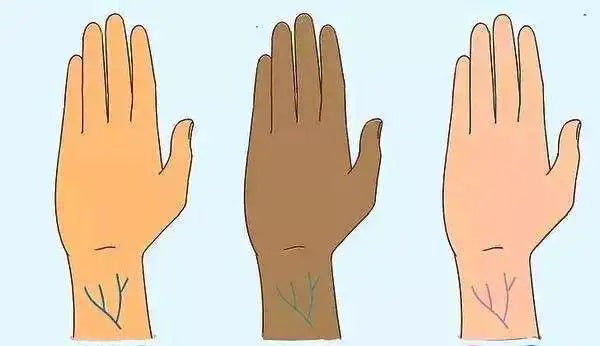Cosplay Advice for Different Skin Color People
Cosplay is a form of creative expression that allows people to dress up as their favorite characters from various media. However, some cosplayers may face challenges when they want to cosplay characters of a different skin color than their own. There are different opinions and approaches on how to deal with this issue, but here are some general tips and advice that may help:

Respect the character and the culture
Cosplay is not an excuse to mock or stereotype a character or a group of people based on their skin color or ethnicity. Avoid using blackface, brownface, yellowface or any other form of makeup that alters your skin color in a way that is offensive or insensitive. Also, avoid using costumes or accessories that are culturally inappropriate or disrespectful, such as headdresses, bindis, kimonos, etc., unless you have permission or a valid reason to do so.
Focus on the costume and the details
Cosplay is more than just skin color. It is also about the outfit, the props, the wig, the makeup and the attitude of the character. You can still cosplay a character of a different skin color without changing your own skin color, as long as you pay attention to the other aspects of the cosplay. Try to make your costume as accurate and authentic as possible, and use accessories and props that match the character's style and personality. You can also use makeup to enhance your features and create a similar look to the character, such as eye shadow, eyeliner, lipstick, etc., but avoid using colors that are too dark or too light for your natural skin tone.
Be confident and have fun
Cosplay is supposed to be enjoyable and fun for everyone involved. Don't let anyone discourage you from cosplaying a character you love because of your skin color. As long as you are respectful and passionate about your cosplay, you can pull off any character you want. Be confident in yourself and your cosplay, and don't be afraid to show off your skills and creativity. Remember that cosplay is for everyone, and there is no right or wrong way to do it.

Conclusion
I think cosplay should be an inclusive and diverse activity, with no fixed standards or restrictions. You can choose a cosplay character that suits your preferences and conditions to show your personality and creativity. You don't have to limit yourself to your appearance or personality, you can try some different or challenging roles, which can exercise your acting skills and ability to change, and may also surprise and innovate. However, when choosing a cosplay character, you also need to respect other people's feelings and culture and avoid using any elements that may be considered inappropriate or disrespectful, such as skin color, hairstyle, costume, etc. You also need to understand clearly the nature of the event, its goals, rules and other information and make a reasonable and appropriate choice based on this information.
FAQs
How to Choose Cosplay Characters?
Choosing a character for your cosplay is one of the most critical steps in your costume construction. Whether you want to portray a specific character from a movie or comic book, or you're going to be wearing your original design, here are tips that can help make choosing a cosplay online store character easier.
Think of what you like, There are so many different types of characters out there. You can choose based on the type of genre you want to portray, the kind of outfit you want to wear, and even your style. It has to fit into your overall look! Make sure that whatever costume you choose does not clash with other pieces already in place, such as jewelry or accessories; The most important thing is that each of us has a different height, weight, skin color, and other features different from others. Some people think they can wear any clothes, but we need to consider the size of our bodies before choosing a costume. Skin tone is often a factor to consider while planning your cosplay. Different skin colors should be considered when looking for cosplayers to play your favorite characters. Skin tone will also affect who you can consider as being cosplay models.
Recommended reading: how to choose a cosplay character
Can white people cosplay black characters OR Can black people cosplay white characters?
This is a very interesting and sensitive issue. I think cosplay is a way to express your love and respect for the work and characters, and no one should be excluded or discriminated against. Black people can cosplay white characters, and white people can cosplay black characters, as long as they don't use any methods that could be considered offensive or insulting, such as wearing black or white makeup to change their skin color, or wearing hairstyles or clothing that could be considered culturally appropriated or stereotypical. This practice is called 'blackface' and in some countries and regions, especially the United States, there is a very serious history and reality of racial discrimination and oppression, so it can cause a lot of resentment and opposition.

In short, I think black people can cosplay white characters as long as they don't involve the practice of 'blackface'. Cosplay is a fun and free activity, and there is no need to limit yourself or others because of skin color or race. I want cosplay to be a place where everyone can participate and interact in a fun and friendly way, not a place where some people feel excluded or victimized.
What is Blackface?
Information source:
(1) Blackface - Wikipedia. https://en.wikipedia.org/wiki/Blackface.
(2) Why blackface is offensive: History and origins | CNN. https://www.cnn.com/2019/02/02/us/racist-origins-of-blackface/index.html.
Blackface is a form of theatrical makeup used predominantly by non-black people to portray a caricature of a black person. It is considered racist and offensive because it invokes a painful history of oppression and discrimination against black people. Blackface originated in the 19th century in the United States and Europe, where white performers painted their faces black to mock enslaved Africans and perpetuate negative stereotypes about them. Blackface continued to be used in TV shows and movies until the late 20th century, despite the growing criticism and protests from civil rights movements.
Extended Information: About How Human Skin Evolved
Skin color is the result of genetics, metabolism, and diet. The color of a person's skin can change due to exposure to the sun or other elements. However, there are Asians and Westerners who have darker skin than people who have white Caucasian bodies. There are also Asians and Westerners who have lighter-colored skin than Caucasians. There are several differences in the skin color of characters that are cosplayed. This is not only because of their race but also their country and culture.
The color of the skin determines the person's racial background and also defines their general appearance. The skin color of different people varies from one country to another, as well as from one race to another. These skin color variations occur because every human has some amount of melanin in their body. In this, we will explore the different skin colors and how these colors have originated from different regions worldwide. We will also discuss how these colors have evolved and what they mean regarding health and beauty.

White
White and fair skin tones are the most common coloration of people in the world. Fair skin is characterized by a light shade of yellow or golden color, with undertones of pink or red. White people are the whitest of all human races, with bluish-white to pale pinkish skin tones. They have a lower amount of melanin in their skin than other races, which gives them a pale appearance. The white pigment is essential because it gives their skin its coloring and protects them from ultraviolet rays. People with white complexions have much more difficulty tanning than those with darker complexions. Those with a white complexion tend to tan very quickly, whereas those with dark complexions lose their tanning ability over time. This is due to a lack of melanin that protects against UV rays from the sun.
In addition to having more difficulty tanning than others, people with white complexions also tend to burn quickly after sun exposure, no matter how long they spend in the sun! This is due to their lighter-colored skin, which reflects more heat from the sun's rays than darker-colored skins do.
Medium White to Light Brown
Medium white to light brown - Uniformly Tanning behavior. These people have a yellow skin color but are considered medium white because of their tanning behavior. They can tan easily, and their skin color becomes lighter when they do so. This happens because of the production of melanin in the body. Their skin tone is usually lighter than that of other people with similar skin color.
Dark Brown - Non-uniform Pigmentary Disorders
Dark brown people have dark brown skin and dark brown eyes, but their hair is usually light in color. This type of pigmentary disorder occurs when the melanocytes produce too much melanin, which leads to a darker appearance for those with this condition. Dark brown people have a higher risk of developing cancerous tumors on their bodies compared to those who have lighter shades of pigments in their bodies.
Light Brown - Xerosis or Hypopigmentation
Light brown people have lighter shades of pigments in their bodies compared to others with similar pigments. Light brown people can also experience xerosis or hypopigmentation, which means they will experience skin dryness due to low oil production.
Olive, Moderate Brown
Olive skin is one of the most common skin colors and is usually associated with the Mediterranean region. Its color varies from light yellow to dark brown depending on the amount of melanin in the body. Olive skin is characterized by a smooth texture, high oil content, and a tendency to tan easily. This coloring can be found among people from Italy, Spain, Portugal, and North Africa.
People with olive-colored skin are considered more attractive than those with darker versions of the same color because they have a healthy glow that makes them appear younger than their age. However, this doesn't mean they don't need to take extra care of their skin. Olive-colored people should ensure they're using proper sunscreen every time they leave home or go out in sunny weather because this type of skin tends to get burned quickly by ultraviolet rays.

Brown, Dark Brown
Dark brown skin is the most common skin color in the world. Dark brown is a term used to describe any shade of brown, including those with a tinge of red and yellow. The color dark brown is obtained from a mixture of copper and iron.
People with dark brown skin color have a high resistance to sun exposure, which makes them more prone to developing wrinkles and age spots on their face, hands, and body. In addition, they also tend to be less prone to acne than other people with dark complexions. Their hair tends to grow darker as they get older, but it does not turn completely black like people with the black hairdo.
People with dark brown skin tones have an advantage over those with lighter or redder skin when it comes to managing their skin health problems because they have a better sense of touch than those with lighter skin tones or even redder ones. They are also better at detecting heat and coolness in their skins because they can feel the heat more quickly than others.
If you found this article helpful, please share it to help more people.
